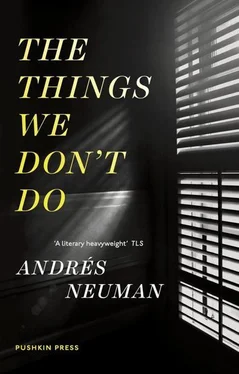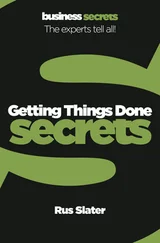It was me who killed John Lennon, but I wasn’t his murderer. While I was struggling with Chapman, trying to deflect his trembling hand from the path of his victim, who now was staring at him in disbelief from behind his glasses, I distinctly felt my own finger slip for an instant into the space in front of the trigger, press down and pull out again with frantic horror, too late. Chapman fired the next shot at Lennon, and all the remaining ones; but they were simply the coups de grâce. My first instinct was to try to protect myself from a possible assault by Chapman. I quickly realized that he had made his dream come true and no longer even saw me, that he would remain motionless contemplating Lennon’s blood-spattered body, with the fascination insane people have when reality finally proves them right. I know for sure that John fell there, and not elsewhere. So that if minutes later they discovered him beside the arched doorway, I assume Chapman must have dragged him there to show off his handiwork to greater effect. As for me, I took the opportunity to flee, or rather, to hide as best I could and wait to leave behind the first resident that opened the barred door.
When shortly afterwards the police arrived and arrested him, Chapman said nothing at all about my being at the Dakota. To begin with his silence surprised me, but then I understood: Chapman had achieved his moment of glory and wasn’t willing to share it with anyone. He had found Mister Lennon, he had asked him to sign his single and had emptied his gun into him at close range. And that was how they led him away, smiling meekly, staring into the distance, raincoat draped over his shoulders. Despite her insistence that she had been there with him, it was at this point that Mrs Ono found out and came down in the elevator.
How is it that the police didn’t also find my fingerprints on the murder weapon? Simple. I already said so at the start: that winter was turning cold. I was wearing gloves.
I have often wondered what was Lennon’s last coherent thought, just before he met his killer: a possible melody, his son’s face, his blessed Japanese woman, an urge to relieve himself, some vague banality. Or did part of him sense the danger and that was why he invited me up. Does the mind go on the alert before the body does when death is close by? I didn’t dare buy the papers until the following afternoon: And though the news was rather sad. The man whom hours earlier I had accompanied through the doors of the Dakota was over all the front pages. I recall what he said in an interview with Playboy a few days before he died: “I hate it when they say it’s better to burn out than to fade away. It’s better to fade away like an old soldier than to burn out. I don’t appreciate worship of dead heroes. It’s garbage to me. I worship the people who survive. No, thank you. I’ll take the living.”
I have tormented myself again and again, recreating the scene, correcting my every movement, rectifying fate. I would give anything for a little peace of mind; but I am plagued by mortal music. I am he as you are he. I fear I shall never stop revisiting that freezing 8th December at the Dakota. Indeed, who among us wasn’t there just like starting over, grasping that damned gun again and again, struggling uselessly?
ARISTIDES USED to come to work naked. We all envied him. We did not envy him for his body, which was no great shakes, but for his conviction: before any of us managed to laugh, he had already cast a reproving glance at our clothes and turned his back on us. And also his pale, hairless buttocks.
This is intolerable, growled the departmental head the first time he saw him walking naked along the corridor. It’s true, agreed Aristides, everyone here is horribly dressed.
Since that was in spring, we assumed this situation would last at most until the start of autumn, and that afterwards the weather itself would return things to their normal course. And in November, the waters of the rivers, the rain in the ditches and the lizards in the marshes did return to their normal course, but nothing changed about Aristides, apart from the slight shiver in his shoulders when our working day was over and we went out into the street. This is unheard of, exclaimed the departmental head wrapped in his raincoat. To which Aristides responded in his offhand way: It’s true, it hasn’t snowed yet.
Gradually our mutterings gave way to hero worship. We all wanted to go round like Aristides, to walk like him, to be exactly like him. But nobody seemed keen to take the first step. Until one sweltering morning, because some things are always bound to happen, one of us walked into the office with no clothes on, trembling. Not a single laugh was heard, but rather a profound silence, and then after a while a smattering of applause. Watching this naked body parading along the corridor, many of us pretended we hadn’t seen a thing, and carried on working as if nothing had happened. However, a few weeks later, it was the exception in the office to find anyone dressed. The last to surrender was the departmental head: one Monday he appeared before us in all his hairy, flabby glory, touchingly ugly, far gentler than usual. At that, all of us employees felt relieved and powerful. We passed each other in the corridor giving whoops of joy, slapping each other on the buttocks, flexing our biceps for one another. And yet whenever we sought out Aristides’s approving eyes, all we met with was an unexpected grimace of disdain.
I know it won’t be easy to withstand the winter, which is only a few days away. The skin on my back tells me so, as do my shoulder muscles, which contract when I leave the office. Despite these drawbacks, what most torments me is how ridiculous I feel recalling all those years I spent with my clothes on. Apart from that, I am prepared to stay like this for as long as it takes the others to recognize my courage, until I am the last naked body in the office.
Even so, for some reason I still don’t feel that when I come to work I am the same as Aristides. Let’s just say that I try every morning. And no, it’s not the same.
THE WORST IS OVER. I am calm now. Lisandro brings me a cup of tea and asks me if I am all right. I nod, as the long, warm hand of liquid traverses my chest and settles in my stomach. I start to feel sleepy. Lisandro takes an exquisite amount of time to do each thing; with his one arm he looks after me better than anybody else could. I am very grateful to him. All we have to do is wait for me to recover completely so that everything can go back to how it used to be.
With hindsight, that night provided us with all manner of warnings about the impending disaster, but we were too sure of ourselves to notice those small details. It cannot be denied that the moon was spinning like a frenzied disc, or that the cold wind in Granada was more hostile than usual, too cutting for August. Lisandro was walking with his chin sunk between the lapels of his overcoat, so that the smoke from his cigarette mixed with the vapour from his breath the way a harmless gas would with another, lethal one. I had opted for my grey scarf, and was inhaling a smell of soggy wool. We didn’t talk. Even with less alcohol blurring our awareness, it would have been hard to see any sign in the shadows obscuring the caryatids, giving them the appearance of headless figures. As always, we went via Carrera del Darro. Despite being low, the river sounded strangely lively amid the mud and rocks. The cold and our thirst driving us, we took swift strides and looked down at the cobblestones. Paseo de los Tristes was almost deserted save for the odd drunk German or Englishman, a couple on the verge of having a quarrel, one or two scooters, the habitual beggars. I asked Lisandro if he wanted to eat. He said he wasn’t hungry, but that we could get a sandwich if I wanted, and he repeated that he wasn’t hungry. I understood, and told him not to worry if he hadn’t any money. Then Lisandro asked me if I wanted to smoke his last cigarette.
Читать дальше












